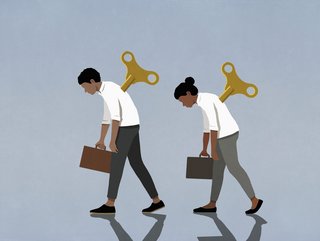Productivity paradox as automation makes humans work harder

Research has revealed that automation and digitalisation in science labs can increase the complexity of work, part of a ‘digitalisation paradox’. Experts say this challenges the assumption that everyone involved or affected by digitalisation becomes more productive or has more free time when parts of their workflow are automated
A study by Barbara Ribeiro, an Associate Professor in Innovation Management and Policy and Honorary Lecturer at SKEMA Business School and the University of Manchester, published in Research Policy, focused on scientists in synthetic biology, or synbio, which involves redesigning organisms to have new abilities. Synbio experiments rely on advanced, robotic platforms to repetitively move a large number of samples and also use machine learning to analyse large-scale experiment results.
According to Ribeiro, the digitalisation of scientific processes, including the use of automation, aims to scale up science that can be done and save researchers' time. However, in the study, scientists were not released from repetitive, manual or boring tasks as expected. Instead, the use of robotic platforms amplified and diversified the kinds of tasks researchers had to perform.
One reason is that the number of hypotheses and experiments needed to be performed increased. With automated methods, the possibilities are amplified. Scientists said it allowed them to evaluate a more significant number of hypotheses, along with the number of ways that scientists could make subtle changes to the experimental setup. This had the effect of boosting the volume of data that needed checking, standardising and sharing.
Additionally, robots needed to be ‘trained’ in performing experiments previously carried out manually. Humans also needed to develop new skills for preparing, repairing, and supervising robots to ensure there were no errors in the scientific process.
Troubleshooting takes over traditional tasks
The study suggests that while scientific work is often judged on output such as peer-reviewed publications and grants, the time is taken to clean, troubleshoot and supervise automated systems competes with the tasks traditionally rewarded in science. These less valued tasks may also be largely invisible, mainly because managers are the ones who would be unaware of mundane work due to not spending as much time in the lab.
The synbio scientists carrying out these responsibilities were not better paid or more autonomous than their managers. They also assessed their own workload as being higher than those above them in the job hierarchy.
“There are many often invisible work practices needed for the development and maintenance of digital infrastructure,” says Ribeiro. “This phenomenon could be described as a ‘digitalisation paradox’. It challenges the assumption that everyone involved or affected by digitalisation becomes more productive or has more free time when parts of their workflow are automated.
Concerns over a decline in productivity are a key motivation behind organisational and political efforts to automate and digitalise everyday work, she says. but we should not take promises of gains in productivity at face value.
“Instead, we should challenge the ways we measure productivity by considering the invisible types of tasks humans can accomplish beyond the more visible work that is usually rewarded,” says Ribeiro. “We also need to consider how to design and manage these processes so that technology can more positively add to human capabilities.”






